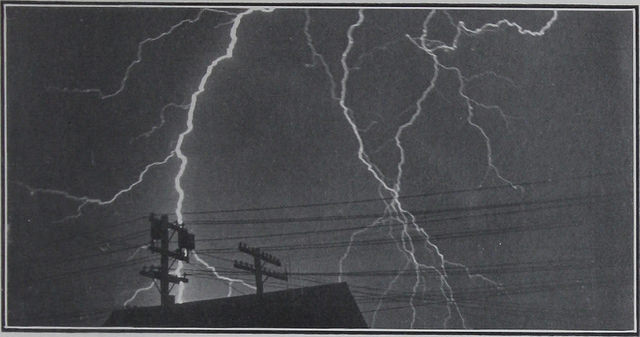Protecting Your Air Conditioner from Lightning
 They say that lightning never strikes the same place twice, but this isn’t exactly true. Environmental and structural factors can attract lightning, and though it is uncommon for people to be struck by lightning in Colorado, our homes and electrical appliances are certainly at a higher risk than other parts of the country.
They say that lightning never strikes the same place twice, but this isn’t exactly true. Environmental and structural factors can attract lightning, and though it is uncommon for people to be struck by lightning in Colorado, our homes and electrical appliances are certainly at a higher risk than other parts of the country.
The weather in Colorado can be unruly, changing drastically between extremes of heat and cold as well as transitioning between stormy and dry spells. All it takes is one power surge caused by a lightning strike to ruin your air conditioning unit and lead to costly repairs or replacement. (Not to mention, you’ll have to suffer through the heat!)
What’s the danger?
The truth is, lightning can damage your air conditioning and heating systems without a direct strike. When lightning strikes near a power line, it can cause a power surge that flows through the system to your wall outlet.
The spike in voltage during a power surge can damage components of your household electronics that are plugged in at the time. The increased voltage has the ability to cause an arc of current inside the device itself, overloading the system and damaging other components from the sheer heat generated by it.
Your air conditioner may not be top of the list when you think of “electronics” or “appliances” but it’s at risk of power surges too!
Limiting Your Exposure to Risk
Knowing that your AC system can be damaged by lightning, why risk it? There are a number of steps you can take that will protect your system and the investment you’ve made in it.
1. Turn off your AC system
A severe strike does have the ability to fry electronics and appliances that aren’t turned on (because they are still plugged in to the grid), but turning things off will provide a bit of protection.
2. Turn off power at the breaker
By turning off the power at the breaker, you’re separating the plugs (and any appliances using them) from the rest of the system, meaning a big surge of power can’t overload them easily.
In some cases there may be a breaker or fuses at the disconnect switch, outdoors by the condenser. Depending on the model and the setup, it could be possible to turn of the power here, but it would be a big hassle during a storm!
3. Whole-home surge protectors
High quality surge protectors can also be installed in your home. Typically costing around $200–$500, these whole-house surge protectors are wired to the electrical service box to protect everything in your home, not on a plug-by-plug basis like the surge protectors we’re used to.
While these whole-house surge protectors can be pricey, consider the price of all the appliances and electronics in your home today. Every day our dependency and demands on our electronics increases—the protection may be worth the cost.
Is Your Unit Covered by Insurance?
Even with insurance, it’s a good idea to take extra precautions with your air conditioning and other appliances and electronics. Insurance policies are riddled with complex language and situational terms. Though you have insurance, you may not have comprehensive coverage. Of the insurance policies that do protect your air conditioner, you will still be required to prove that a power surge was the cause of damage. One way to establish proof is to show that other devices—like alarm clocks, TVs, appliances, and radios—were also damaged after a thunderstorm.
The bottom line is that even if you have insurance and you can prove to your insurance provider that a power surge damaged your air conditioner, it is a huge hassle. You have to prove the damage, go through the collection process, and replace your air conditioner—all of which can take a lot of time. You are much better off avoiding these problems in the first place!
Recovering from a Power Surge
If worst comes to worst and your air conditioner gets fried during a thunderstorm, we can help you recover. Not only can we help you diagnose the damage and determine if repairs are worth considering–or if it’s necessary to install a new unit–but we can also make sure that everything is properly grounded when your system is brought back to life. If you would like to discuss additional levels of surge protection for your air conditioning system we would be glad to research and recommend products that will make sense for your home. Whether you’re looking to avoid costly air conditioning damages or are dealing with a damaged unit now, contact us today for professional advice and service!




